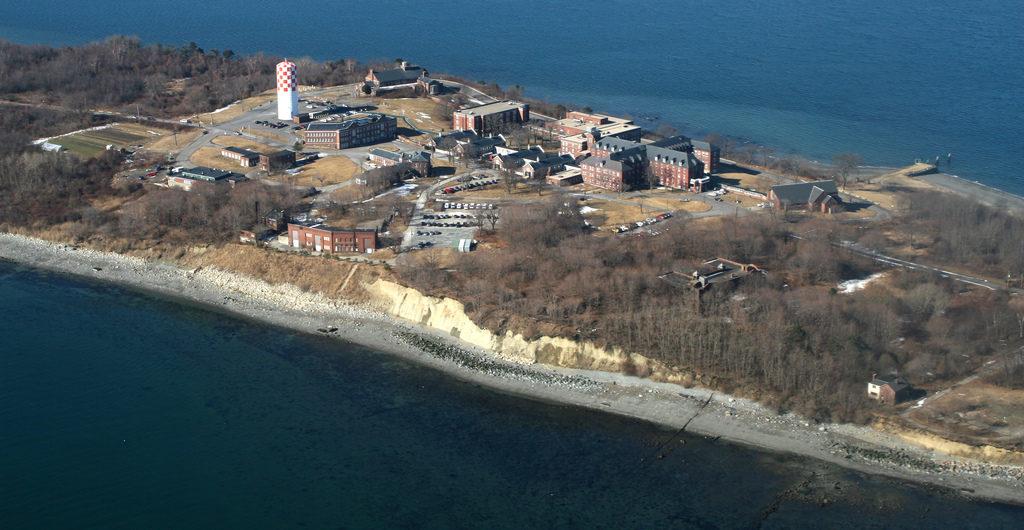By Scotty Schenck, news correspondent
After the sudden closure of the Long Island Bridge due to structural unsoundness on Oct. 9, the City of Boston has been faced with the relocation of hundreds of individuals experiencing homelessness who occupied the island. It had provided those people with safety in the form of a homeless shelter, owned by the City of Boston Public Health Commission (BPHC).
“The bridge has been deemed structurally unsound. It may take up to five years to be repaired,” McKenzie Ridings, a spokeswoman for the BPHC, said. “Until a more permanent shelter can be put into effect, we will be using the South End Fitness Center.”
She said they are using the center not only because is it BPHC property, but also for its proximity to the Woods-Mullen Shelter, another BPHC shelter being used to take on the people who would have stayed on Long Island.
The building has been converted into an emergency shelter, where 250 people are housed each night, Ridings said. She also said there is a network of providers throughout the city working to provide shelter for those who were relocated. According to Ridings, the current plan is only temporary, and the City of Boston is looking for more long-term housing.
“We had an emergency plan that was developed in case the Long Island Bridge had to be closed for repairs,” Ridings said. “It was a four-to-six-week plan… obviously the plan has been put into effect, but the bridge has been closed for the foreseeable future.”
Though the BPHC is looking for temporary solutions during the bridge repairs, some believe that continuing to look to Long Island as a permanent solution in the future of housing the homeless is the wrong answer.
“I think sending hundreds of people out there, to that island, has always been a mistake,” former Massachusetts governor Michael Dukakis said. “We ought to be better than that. These are people who need help, they need to be relocated into permanent housing and that ought to be taking place in the city, not on Long Island.”
Dukakis, who also serves on the board of directors of the Boston Harbor Alliance, said that he is opposed to spending money to fix the bridge and would rather see the island turned into a park, and establish a dock so boats can take people to and from the island. Dukakis would not like to see the island revert to its practice of bussing the homeless in at night, only to wake them at 5 a.m. to be shipped back into Boston.
“I just think that it’s time to move on to something; A: a lot more humane; and B: a lot more successful,” Dukakis said. “And turn Long Island back into what it was in the first place… and make it part of this glorious and increasingly popular island park system that we’ve developed.”
At this time, the City of Boston has no official long-term plan, according to Ridings. However, officials are looking toward possible options. One option they are looking at, Ridings said, is a module steel structure that would be used to shelter individuals. The structure is proposed to be built on Frontage Road, near the now-closed methadone clinic that the BPHC previously ran. Ridings said the building is estimated to cost $2.1 million and would take approximately 15 weeks to construct.
On Nov. 12, a meeting was held at Blackstone Community Center, where people could voice their opinions on the BPHC’s plan. Ridings said that members of BPHC were moved by the outpouring of support by community members. She also said that additional meetings are to be held, including one on Thursday at Trotter Elementary School in Dorchester, for the possible use of Radius Hospital as a temporary shelter.
At the South End Fitness Center, the BPHC is able to provide their clients with beds, meals, medical care with the help of the Boston Health Care for the Homeless Program and case management, Ridings said. Based on the needs that the homeless case manager assesses, the BPHC will coordinate and help to find services to meet those needs, such as housing, employment and crisis intervention services.
Massachusetts Coalition for the Homeless Executive Director Robyn Frost said that she found the BPHC’s emergency response commendable.
“The Boston Health Commission is doing their best to find a solution to a horrific situation,” Frost said.
However, Frost said she was critical of using the Long Island shelter in the first place. She said that it would be best if the homeless there were in the City of Boston, so they would be near public transportation in order to travel to work or other destinations.
“People having to go and take a bus ride back out to Long Island every night at best was difficult,” Frost said. “Permanent housing is what everyone in that particular shelter needs and wants. Nobody needs or wants to be in a situation where they are considered homeless. You know, this is a poverty-driven issue. What needs to happen is that there needs to be more single-room occupancies made available so people can actually rent those types of places.”
Photo courtesy Doc Searls, Creative Commons














